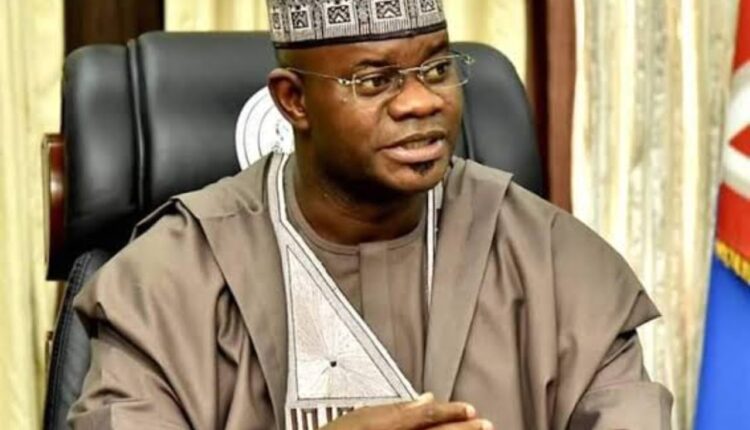The Court of Appeal’s Lagos Division upheld yesterday the temporary forfeiture order that the Economic and Financial Crimes Commission (EFCC) had secured for 14 properties purportedly owned by former Kogi State Governor Yahaya Bello.
Based on the constitutional immunity afforded to a sitting governor, the appellate court effectively overturned a previous Federal High Court decision that had dismissed the EFCC’s case.
The main judge, Justice Yargata Nimpar, with Justices Danlami Senchi and Paul Bassi agreeing, declared that the trial court had erred in stopping the proceedings by using Section 308 of the 1999 Constitution.
According to the judgment, immunity does not excuse the investigation or preservation of property thought to be the profits of a crime.
She claimed that instead of deciding whether or not the properties should be ultimately forfeited, the trial court erred by striking out the case.
In a ruling issued by Justice Nicholas Oweibo of the Federal High Court in Lagos, the EFCC had secured the temporary forfeiture order. The 14 properties in Lagos, Abuja, and Dubai, United Arab Emirates (UAE), were temporarily seized by the anti-graft commission after the judge granted permission.
The agency filed an ex parte motion seeking the confiscation of the assets, claiming they were acquired through illegal means.
Additionally, the court mandated that the EFCC post the forfeiture notice in two national newspapers, requesting that any interested parties provide justification for why the properties shouldn’t be given to the federal government permanently.
Read Also: CoSPAL Secretary-General Calls for Strengthened Parliamentary Collaborations
Through his legal team, the former governor contested the order, claiming that the properties could not have been bought using public funds because they were obtained prior to his appointment.
In addition, he claimed immunity from civil and criminal actions by invoking Section 308 of the Constitution. He further contended that the Proceeds of Crime (Recovery and Management) Act, 2022, could not be applied retroactively.
His attorneys also questioned the jurisdiction of the Federal High Court in Lagos and referenced an existing ruling from a Kogi State High Court prohibiting the EFCC from looking into the state’s financial statements.
The attorneys claimed that although Bello lives in Lokoja, the homes were outside of Lagos.
However, EFCC counsel Rotimi Oyedepo (SAN), who led Hanatu Kofanaisa and Bilkisu Buhari-Bala, pleaded with the appellate court to preserve the agency’s statutory authority.
The attorney maintained that the commission’s ability to look into possible economic crimes had not been prohibited by any Nigerian court.
He insisted that there was a reasonable suspicion that the opulent properties, which included an apartment in Dubai’s famous Burj Khalifa, had been purchased with illegal money.
In connection with the same investigation, the EFCC also requested the temporary confiscation of an additional N400 million.
Because of Bello’s immunity, Justice Oweibo dismissed the case, ruling that the court lacked jurisdiction. However, the EFCC challenged the ruling.
The Court of Appeal ruled that the immunity clause did not extend to property preservation proceedings and rejected Bello’s preliminary objection.
It mandated that the EFCC hold the last forfeiture hearing.

